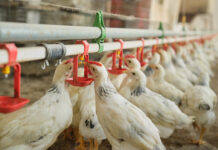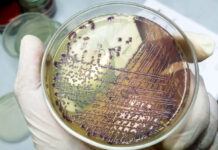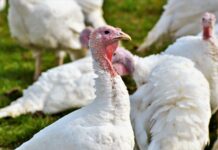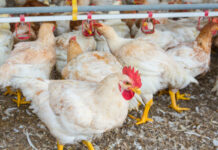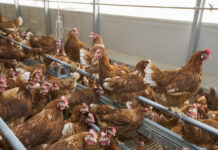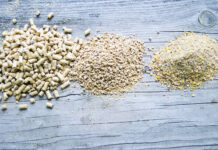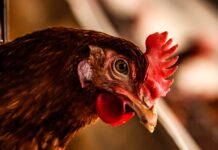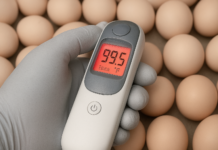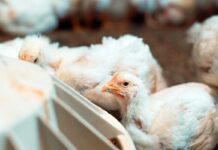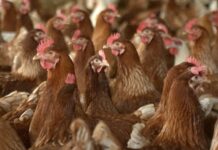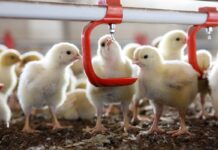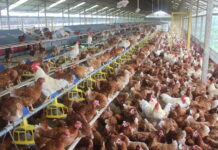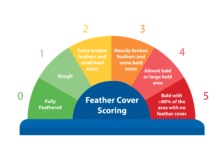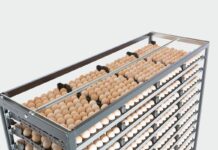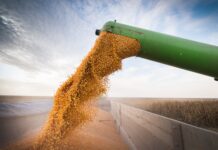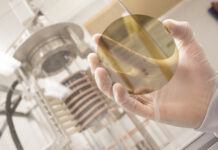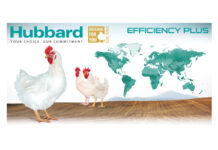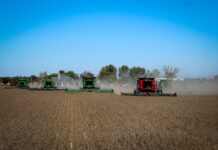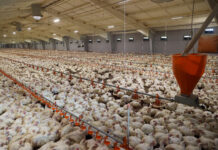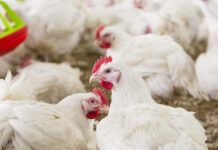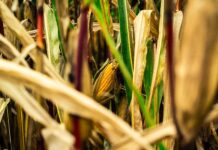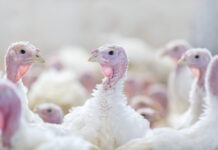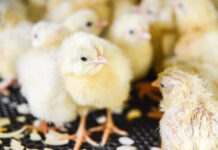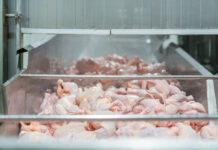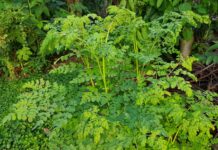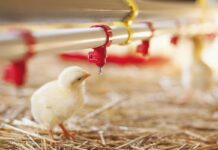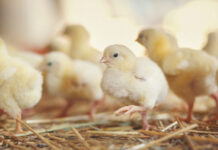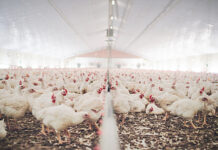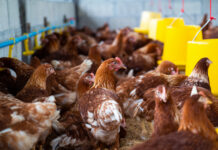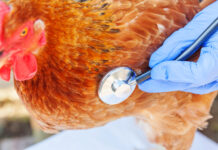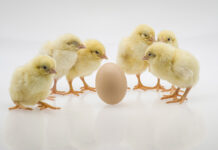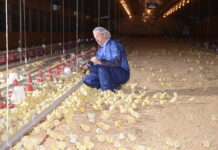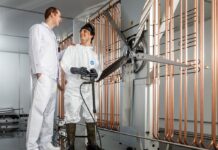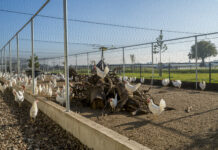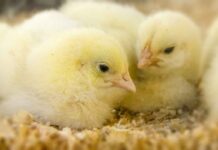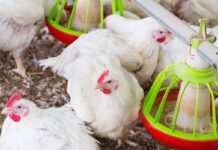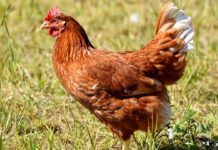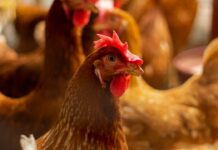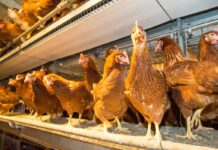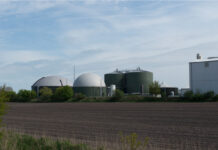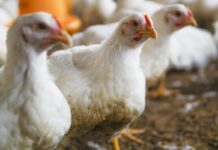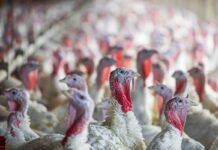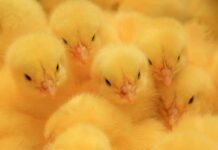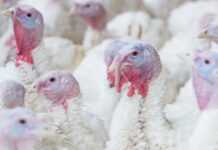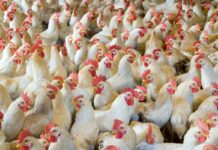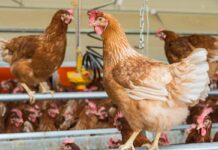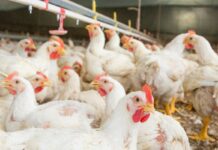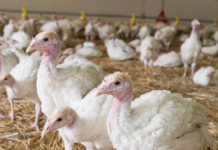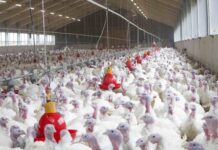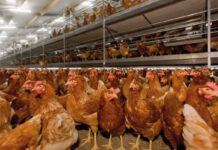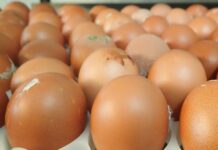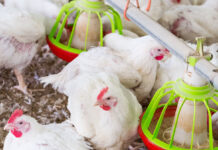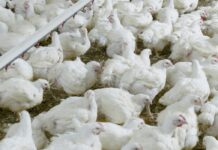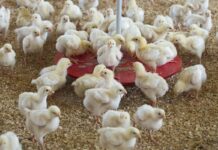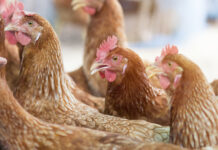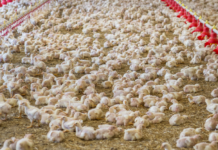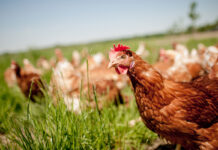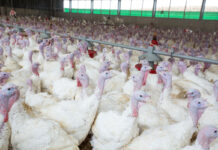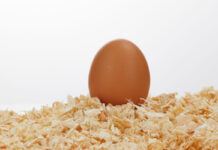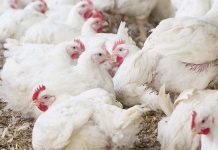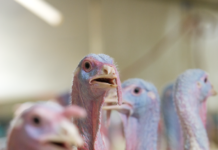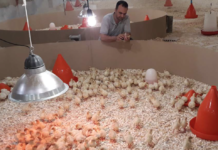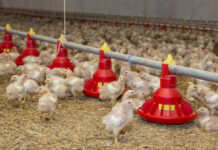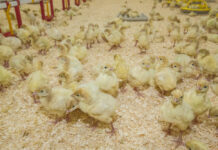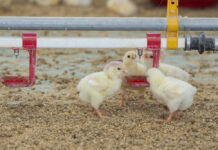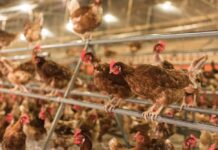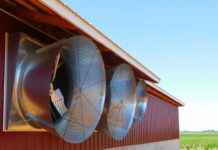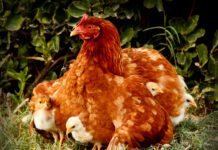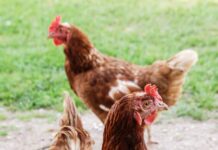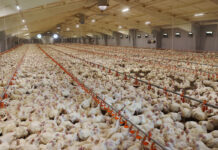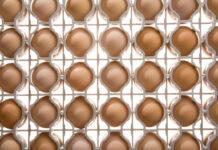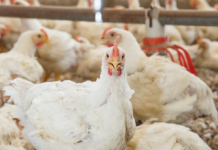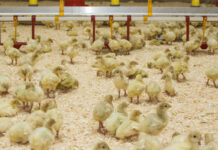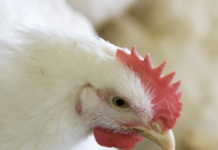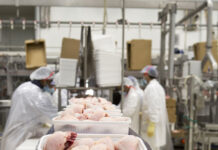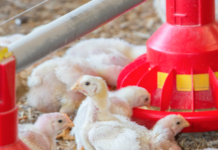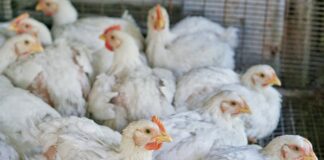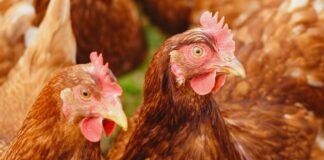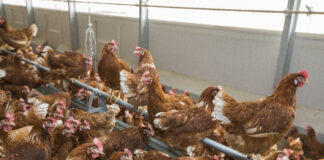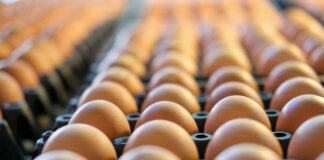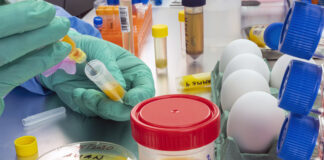Mass water vaccination in poultry sheds: accurate dose for every bird, every line
Even if many people use the same methods or knowledge for water vaccination in cage or aviary systems as they do for broiler or...
Practical guide for evaluating day-old chick quality: key standards and health monitoring
Evaluating the quality of day-old chicks (DOC) is crucial for successful poultry production. This practical guide outlines the key physical indicators, health factors, and...
EFSA’s scientific opinion on welfare of turkeys on farm
Turkeys are raised for meat production in large flocks across the EU, mainly in indoor housing. Systems with covered veranda and outdoor range are...
Broiler chickens and transport: more space doesn’t improve animal welfare
When we talk about animal welfare, the first thing that usually comes to mind is space. Most people instinctively think that giving chickens more...
Should the US rethink its avian influenza policy?
➤ Tom Tabler, Professor and Extension Poultry Specialist, Department of Animal Science, University of Tennessee Institute of Agriculture
➤ Tanner Thornton, Graduate Research Assistant, Department...
Thoughts on diet energy. Definitions, requirements and alternatives
Energy is by far our most expensive nutrient, yet surprisingly we never receive guarantees when we trade ingredients or manufacture diets. Energy level dictates...
Sea urchin waste as alternative source of calcium for laying hens
In Italy, several tons of sea urchins are harvested annually, yet only the gonads are used for consumption; the rest, rich in calcium carbonate,...
Modern incubation techniques to improve chick quality and uniformity. The importance of chick quality...
The poultry industry has advanced rapidly over the past decades with hatchery management playing an important role in ensuring the successful production of good-quality...
Decoding cecal cores in chickens: from necropsy to diagnosis
Cecal cores are a classical pathological gross lesion seen in field necropsies. Even though a presumptive diagnosis is made based on the visualization of...
Avian influenza diagnostics in foxes provide valuable addition to mammal surveillance
Research by Wageningen Bioveterinary Research (WBVR) and the Dutch Wildlife Health Centre (DWHC) shows that foxes in the province of Friesland can become infected...
New avian flu outbreak detected on a farm in the Urgell region (Catalonia)
The Government of Catalonia has confirmed the detection of a new case of avian influenza on a poultry farm located within the surveillance radius...
Drinking Water Management in Broiler Production
Why Water Quality and System Management Matter More Than Ever
In modern broiler production, drinking water is often treated as a secondary input compared to...
Animal welfare regulation issued, opening wider opportunities for cage-free egg development
Jakarta – The Government of Indonesia has officially issued Minister of Agriculture Regulation (Permentan) No. 32 of 2025 on the Implementation of Animal Welfare....
Royal Pas Reform introduces Bangladesh’s first SmartStart™ post-hatch feeding system in Joypurhat
A new chapter for chick welfare, uniformity, and early performance in the Bangladesh poultry sector
Joypurhat, Bangladesh, has marked a significant milestone in the nation’s...
Female persistency post-peak. Managing fertility and production
INTRODUCTION
Managing breeding stock fertility and egg production is critical to achieving good breeder production and welfare. However, maintaining persistent egg output and hatchability remains...
Hatching eggs: the importance of assessing internal egg quality
Hatching egg quality has a significant impact on hatchability and chick quality. By making egg quality control a part of the routine procedures in...
How much dietary protein is too much
Dietary protein accounts largely for most of broiler feeding costs which in return shrink revenue if protein is not used efficiently. Tuning dietary protein...
USPOULTRY Releases Updated Report of Antibiotic Stewardship Within US Poultry Production
Updated research, supported by the U.S. Poultry & Egg Association (USPOULTRY) and the U.S. Food and Drug Administration (FDA), was released today quantifying the...
Axel Aguayo joins Hubbard as Technical Sales Manager Spain & Portugal
EMEA – Hubbard is pleased to announce the appointment of Axel Aguayo as Technical Sales Manager for Spain and Portugal. Axel is based in...
Animal feed probiotics market expands as antibiotic-free nutrition gains momentum
The global animal feed probiotics market is undergoing a significant transformation as livestock producers increasingly seek sustainable, science-driven alternatives to conventional growth promoters. Valued...
Stepping into barn digitalization
Technification of poultry barns is a growing priority for most producers to support precision farming practices. Although such improvements can ease flock management and...
A synergistic herbal alternative combination: curcumshield vs poultry infections – a broad-spectrum study
Introduction
In the case of bacterial infections, various categories of antibiotics – especially synthetic ones – are widely used as broad-spectrum bacteriostatic and bactericidal agents....
EU compound feed production market forecast 2025
FEFAC market experts forecast continued stability in the EU compound feed production market for 2025. The total industrial compound feed production in the EU27...
Feeding the commercial turkey
Choosing the most effective feeding programme has never been more important given the unpredictability of the raw material market and lack of consistent supply...
NWO OTP grant awarded to WUR project aimed at head start for day-old chicks
The immune system of a chicken starts in the egg. Validated tools to assess how incubation conditions influence immune development are lacking. A new...
Safeguarding processing yield across the primary process
The processing plant is the epicenter of a poultry processing company for being its only utility-generating area, as all the others are cost-generating centers,...
The use of moringa oleifera leaf meal (MOLM) and its extract in low protein...
The objective of the present study was to evaluate the effect of incorporating different levels of MOLM and its extract - as natural antioxidants...
Water disinfection in poultry farms: a low-cost practice with high impact
Water is often overlooked as a source of disease risk in poultry farming. Yet, when it comes to biosecurity, drinking water is one of...
The manureshed concept: a solution to poultry litter nutrient recycling?
Surface waters in the United States are regularly assessed as a part of the Clean Water Act to determine whether the water quality protects...
Improving broiler-breeder performance with 25-hydroxyvitamin D3 of fermentative origin
25-hydroxyvitamin D3 from a fermentative source was supplemented to broiler-breeders in two separate trials, compared to standard basal diets without a 25-hydroxyvitamin D3 source....
Priming young birds for gut health and resilience
This brief review focuses on the types of fibre that the nutritionist should be considering and how a phase feeding strategy should not only...
Infectious Laryngotracheitis (ILT) Advisory – City of Kingston
The Feather Board Command Centre (FBCC) is issuing an Infectious Laryngotracheitis (ILT) biosecurity advisory for an approximate 10 km area in the City of Kingston.
FBCC...
Innovative approaches to egg sexing
The rise of specialized layer genetics in the mid-20th century introduced a lasting challenge for egg producers: identifying and culling male chicks. This practice...
Partial house brooding design and management for broiler breeders
The importance of the brooding period cannot be overemphasized. The first 14 days of a chick’s life set the precedent for good performance. Extra...
Keeping the hatchery clean and disinfected
The main goal of any hatchery is to produce a maximum number of healthy, uniform day-old chicks, poults or ducklings. Poor hatchery hygiene will...
Better for birds, the earth, and you: Kipster’s egg
In the United States, as of March 2024, 40% of eggs produced are cage-free. While the cage-free movement has gained momentum worldwide, one company...
The effect of hot and cold hatcher temperature profiles on hatchability and chick quality
An eggshell temperature of 100°F (37.8°C) is widely accepted as optimal for embryonic development from the start of incubation up until transfer time. Eggshell...
Incorporating an essential oil and saponin blend as part of an effective coccidiosis management...
Coccidiosis continues to be a top challenge in the poultry industry and growing evidence of reduced sensitivity to traditional anticoccidials like ionophores and chemicals...
A comparison of hen performance during an extended laying cycle based on hen body...
This study evaluated the performance of Hy-Line Brown hens with different body weights (BW) up to 100 weeks of age. Hens in the lowest...
Balancing production efficiency and welfare
Early poultry selection programs for feed efficiency and production traits alone have been proven successful at developing commercial lines of highly prolific layers and...
Perch usage in laying hens
Modern poultry farming is seeing a significant shift towards higher welfare standards. This is due to the demand of the public for welfare-friendly products...
Turning Poultry Manure into Power: How Biogas Can Benefit Your Farm and the Climate
As the poultry sector looks for ways to improve sustainability and energy independence, biogas production from chicken manure is proving to be a practical...
Reducing stress during broiler catching: a practical welfare package with real benefits
The catching phase in broiler production is one of the most critical—and stressful—moments for birds. How this process is managed can make a major...
Warm weather ventilation management
A poultry house ventilation system is arguably the most important management tool for a farm manager to use. As the birds grow and climates...
Boosting Chick Health from Day One: The Benefits of Spraying a Gelled Nutritional Complex...
In modern poultry production, the first hours of a chick’s life are critical. Yet, due to the natural spread of hatching over 24 to...
Concurrent infection of Histomonas meleagridis and Eimeria meleagridis in a turkey flock
Blackhead disease (histomoniasis) in turkeys is one of the protozoan diseases sporadically documented in commercial turkey production facilities. Histomoniasis may induce mild, moderate, or...
Clinical coccidiosis in broilers with concurrent infection of Eimeria maxima and Eimeria praecox
Coccidiosis is a complex disease in chickens caused by protozoan parasites in the genus Eimeria. As Eimeria species are ubiquitous in poultry facilities, coccidiosis...
How Early Rearing Environments Shape Laying Hen Performance and Welfare
Successful egg production in table-egg laying hens relies on proper caretaking during the lay phase, yet early rearing is also paramount to achieve performance...
Feeding strategies for improved performance
When it comes to improving performance through nutrition, meeting poultry requirements in the way they want/need is paramount to fully achieve their genetic potential....
Pathological manifestations of highly pathogenic and predominant Eimeria species in turkeys
Coccidiosis is caused by intra-cellular enteric protozoan parasites of the genus Eimeria. Eimeria is a gastrointestinal parasite with a complex life cycle involving an...
Cecal coccidiosis in turkeys
Cecal coccidiosis is an important disease that affects the cecal integrity of turkeys and may result in watery feces with flecks of blood. In...
Impact of the lighting and feeding regimen during rearing on Hy-Line brown pullet growth...
The impact of two lighting and three feeding programs during rearing on pullet body weight (BW), feed intake (FI), organ characteristics and start of...
Effective fumigation of hatching eggs to improve hatch results
Microbial contamination of hatching eggs is a main concern of hatcheries as it causes decreased hatchability, poor chick quality, growth and performance. It is...
Poultry gut health critical to NAE production
The production of “No Antibiotics Ever” (NAE) poultry is a common trend worldwide today. Despite scientific evidence indicating that specific antibiotic growth promoters (AGP)...
Overcoming challenges of antibiotic-free production
Antibiotic use once became a conventional, on-farm practice to prevent health issues and boost growth in poultry. Yet, public health concerns about rising bacteria...
Transgenerational impact of broiler breeder nutrition
Continuous genetic selection in meat-type chicken for rapid growth resulted in increased meat production and decreased the time required for achieving the market weight....
When the gut rebels: the challenge of chronic inflammation in laying hens
In the poultry industry, intestinal health is a cornerstone for achieving high production yields, feed efficiency, and disease resistance. One of the issues that...
Biosecurity in poultry farming: an effective tool to fight infectious diseases
This is the first of a series of technical articles on biosecurity in poultry farming produced within the European project “NetPoulSafe - Networking European...
Comprehensive study concludes chicken embryo pain perception starts on day 13th of incubation
The comprehensive study commissioned by the German Federal Ministry of Food and Agriculture has revealed that the perception of pain in chicken embryos begins...
Organic acids as feed additives: pros and cons
Organic acid salts are often included as feed additives in livestock nutrition as feed preservatives but also as growth promoters, intestinal microbiota enhancers, and...
Cost-effective biosecurity management practices
An effective flock health plan must integrate solid strategies for disease prevention, rapid diagnosis, and effective treatment to support poultry health. To attain this...
What is the influence of nutrition and management on egg weight?
Managing egg weight is important for farmers and can greatly vary depending on market demand. Obtaining an egg size in line with market demand...
Case report: histomoniasis in broiler breeder pullets
Histomoniasis, commonly known as blackhead disease, is caused by an anerobic protozoan parasite, Histomonas meleagridis. Histomoniasis affects all gallinaceous birds and turkeys are the...
Histopathological evaluation of Histomonas meleagridis on ceca and the bursa of Fabricius in turkeys
Histomoniasis is caused by Histomonas meleagridis, a flagellated protozoan parasite. It causes systemic infection in turkeys and induces characteristic lesions in ceca and liver....
Some common issues of the first week in brooding turkey poults
Turkey poults are very sensitive to environmental conditions and any uncomfortable situation very quickly leads to a problem and even sometimes a disaster. Any...
Requirement of digestible calcium at different dietary concentrations of digestible phosphorus for broiler growers
An experiment was conducted to determine the digestible calcium (Ca) and digestible phosphorus (P) requirements of 11-24 days old broiler chickens.
L.S. David1, M.R. Abdollahi1,...
Researchers evaluate the effects of heat stress in poults
USPOULTRY and the USPOULTRY Foundation announced the completion of a funded research project at North Carolina State University in which researchers evaluated the effects...
Seeking sustainability in the poultry industry
Becoming sustainable is a must for long-term viability and profitability, and the poultry industry has to meet the needs of the industry, consumers, and...
Detection of antibodies against Chlamydia species in chicken serum
Avian chlamydiosis is a bacterial infection caused by Chlamydia bacteria. The currently available tests distinguish Chlamydia species based on genetic material. Researchers from Wageningen...
The importance of minimum ventilation and how to calculate it
Providing birds with the correct house environment is key to unlocking the full genetic potential and performance of a flock. Poultry growers often focus...
Hybrid Feed – New approach in layer hen feed at start of production
The actual genetic improvements in layer hens are providing the market with a layer hen producing saleable size eggs quicker than before and extending...
Researchers investigate how laying hens visually perceive the resources in cage-free housing
USPOULTRY and the USPOULTRY Foundation announced the completion of a funded research project at Purdue University in which researchers investigated how laying hens visually...
Biological control of Salmonella in the poultry industry: a European perspective
Salmonella remains one of the most important foodborne bacterial pathogens worldwide, and is frequently linked with the consumption of contaminated poultry meat and eggs....
Managing eggs and chicks from young breeders
First week mortality is often higher in chicks from very young breeders (25-30 weeks) than in chicks from older breeders. What causes these chicks...
Formulating layer diets beyond the least-cost model
Due to the high cost of feed for poultry, there is continuous pressure to formulate ‘least-cost’ diets that meet nutritional requirements. However, the main...
Gut health in poultry production: why, what and how
Gut health has become a dominant topic in the global poultry industry. But why did the topic emerge to become so important to the...
Flip-overs: causes and solutions in brooding
The poult start is an extension of the hatching process. The whole process, including poult placement, is only as strong as its weakest link.
William...
A dose response of a heat stable phytase on broiler performance and nutrient digestibility
Phytases have been heavily researched for decades and been used commercially since the early 1990s. Phytase from microbial origin is therefore added to monogastric...
Pre-harvest interventions and implications of safety for turkey processing
Increasing consumer attention toward low fat, high protein diets, and demand for healthy foods has led to a significant increase in the production and...
Sustainable chicken meat production is enhanced by tangibly reduced crude protein diets
The environmental impact of soyabean meal is estimated to be approximately three times that of grain and successful implementation of reduced crude protein diets...


